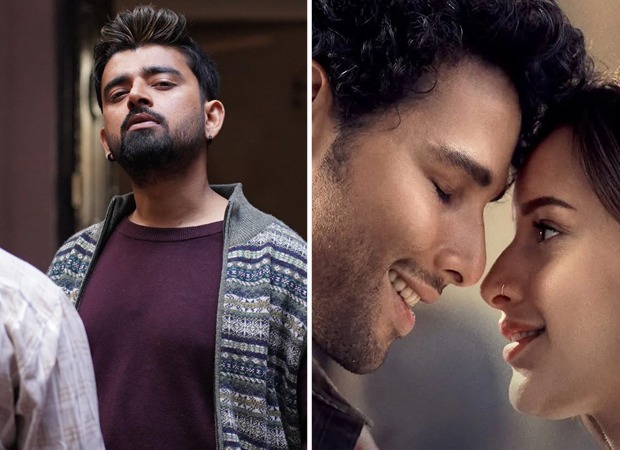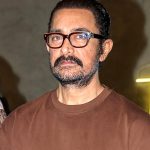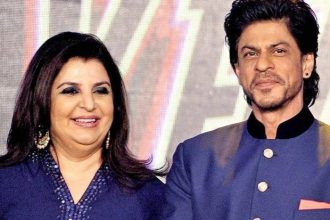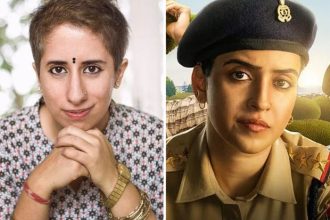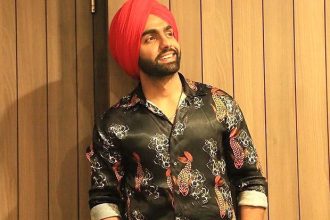Dhadak 2 is a romantic drama that explores themes of identity, societal power dynamics, and the price of love in contemporary India. The film stars Siddhant Chaturvedi and Triptii Dimri in lead roles, with Saad Bilgrami playing Vidhi’s brother, Ronnie. Saad, who has previously been seen in popular series like Gullak, Panchayat, and Ghar Waapsi, spoke exclusively to Bollywood Hungama about the casting process, his on-set experience, and how he approached his character Ronnie.


EXCLUSIVE: Saad Bilgrami on being the antagonist in Dhadak 2, “If you watch me in this film and feel, ‘People like this shouldn’t exist’, then I’ve done my job right”
You are playing an antagonist in Dhadak 2. What was your casting process like?
The casting process was quite special. I feel incredibly grateful and fortunate to be a part of this film, and I genuinely want to thank Mr. Mukesh Chhabra sir. Utsav, who was the casting assistant for Dhadak 2, called me one day for an audition, not for the role I eventually got, but for another character. He said, “Come by, we want to test you for something.” So I went in and auditioned. About ten days later, he called me again and said, “Congrats!” I asked him, “Wait, really? I got into a Dharma film?” I honestly didn’t believe it. But he said, “Well, not exactly this one but they want you to test for another character. Come to the office, I’ll explain.”
At that point, I thought they were calling me in for a smaller part. But when I reached the office, he told me, “We want to test you for the main antagonist in the film.” Two or three days later, I got a call from the direction team. They said, “Please come to the office, ma’am wants to meet you.” That’s when I had the chance to meet Shazia Iqbal ma’am. She’s incredibly generous and genuine. She said, “Saad, thank you for doing this film,” and for me, that was such a big moment.
What was your first reaction when you read the script?
I mean, I was like, “Are they really going to make these scenes?” Or, since it’s Dharma, they’ll change them a bit because they always consider the commercial perspective. I wondered if they would actually include these scenes or not. But then I realized that these scenes won’t happen or rather, they will, as you’ll see in the film. They are very heart-wrenching scenes, and I thought they wouldn’t actually occur.
However, I believe it would have been very difficult for me to perform such a scene since it involves humiliation. And yet, it happened. It got held up by the censor board for a while, but eventually, we got clearance.
How did you prepare mentally and emotionally to portray a character with grey shades?
I don’t have a real-life experience of having an elder sister. Triptii is around my age. So for me, the whole ‘protective elder brother’ emotion was unfamiliar. Especially when it came to her being involved with someone I, as the character, strongly disapprove of, that made it even harder to connect emotionally.
To prepare, I spoke to friends who do have elder sisters. I asked them, “Have you ever felt uncomfortable or angry about someone your sister was talking to?” Some of them shared intense stories, one even said, “We picked a guy up from college and threatened him.” I was honestly taken aback. They said things like, “We have a certain position in society, and we can’t allow our sister to associate with someone beneath that.” I asked, “But don’t you ever question that mindset?” and they responded, “What would that guy know about respecting our sister?”
Dhadak 2 features Siddhant Chaturvedi and Triptii Dimri. How was your experience working with them on set?
When we started filming, I honestly felt like Triptii was my real sister. And by the end of the film, Siddhant became like an elder brother to me, so warm and supportive. When the trailer was released, he messaged me and said, “Bro, your time has come, this is going to be big. You’ve done such a great job.” If you watch any of his interviews, you’ll notice he always takes my name and says, “Saad has done brilliant work.”
There’s one moment you might’ve seen in the trailer where I pull Triptii’s hair. That was tough for me, because I’ve never done something like that in real life. I kept saying sorry, and she was like, “No, no, go for it!” So I just spun her hair, trying to keep it real.
This is Shazia Iqbal’s directorial. What was unique about her vision or direction style?
Love. Even if she’s shooting a violent scene, she’ll do it with love. The way she gives love and respect, it’s incredible. No matter who it is, even a junior artist, she’ll go to them and talk to them. And even while talking, she’ll ask, “Do you want some water? Are you thirsty?” That’s when you truly realise what a generous woman she is. She’s incredibly supportive. She always asks, “What are you bringing in as an actor? You do that. You do it your way.” If anyone appreciates my performance after the film, the entire credit goes to ma’am.
How did the tone and narrative of Dhadak 2 differ from the original?
It’s completely different from Dhadak 1 because this film isn’t a remake, it’s an adaptation of Mari Selvaraj’s Pariyerum Perumal. At its core, it tackles the issue of caste, the divide between upper and lower castes. This is a very hard-hitting film. Dhadak 1 was impactful too, but here, the social issue comes first and the love story follows. It addresses a deep-rooted problem that has existed for generations. This film is about raising awareness and starting conversations. Its core message is about equality and the importance of not demeaning anyone. And only then, it unfolds into a beautiful love story.
At one point, I thought about looking up to someone for inspiration, but then I felt it’s better if the director is the one who brings out whatever potential I have within me. I didn’t try to imitate or get inspired by any actor. I just went with what came naturally. I read the character, understood it, and performed it my way.
Was there a particular scene that pushed you out of your comfort zone?
There’s a scene with the hero and his father, with Vipin Sharma sir. It’s a humiliation scene, and for me, it was very hard-hitting. I’m someone who naturally speaks with respect and politeness, whether it’s an auto driver or someone on set. That’s just who I am. So during that scene, I wasn’t able to humiliate him the way the character was supposed to.
That’s when ma’am said, “We don’t need Saad right now, we need Ronnie, the character. Bring him out. Take five minutes and get into that zone.”
After I performed that humiliation scene, I went completely quiet. I sat alone for two to three hours. When I got back to my hotel room, I called a few friends and just kept thinking, “What did I just do?” I cried a lot after that. It really hit me.
What can audiences expect from your character that sets him apart from typical Bollywood antagonists?
All I’ll say is this, if people genuinely feel a strong sense of hatred toward my character, that hard-hitting kind of hate, then that’s a win for me. Usually in Bollywood, heroes have a certain swag and end up looking cool even when they’re flawed. But if you watch this and feel, “People like this shouldn’t exist,” then I’ve done my job right.
After Dhadak 2, what kinds of roles are you looking forward to exploring next?
I want to do characters that surprise even me. I want to work with filmmakers like Zoya Akhtar, Shazia ma’am again, Faruk Kabir, I’ve already worked with him on Khuda Haafiz 2 and also directors like Sandeep Reddy Vanga, Anurag Kashyap sir, and Vikramaditya Motwane sir.
These filmmakers are all so different, and the characters they create are equally layered and unique. That’s what excites me, playing versatile roles, something new every time. I’d also love to do a romantic film. I’m from Lucknow, so tehzeeb and tameez (grace and etiquette) are ingrained in me. If I get the opportunity to express that on screen, I would love to do it.
Also Read: 5 reasons why Dhadak 2 deserves your full attention
More Pages: Dhadak 2 Box Office Collection , Dhadak 2 Movie Review
BOLLYWOOD NEWS – LIVE UPDATES
Catch us for latest Bollywood News, New Bollywood Movies update, Box office collection, New Movies Release , Bollywood News Hindi, Entertainment News, Bollywood Live News Today & Upcoming Movies 2025 and stay updated with latest hindi movies only on Bollywood Hungama.
#EXCLUSIVE #Saad #Bilgrami #antagonist #Dhadak #watch #film #feel #People #shouldnt #exist #Ive #job #Bollywood #News
Source link
